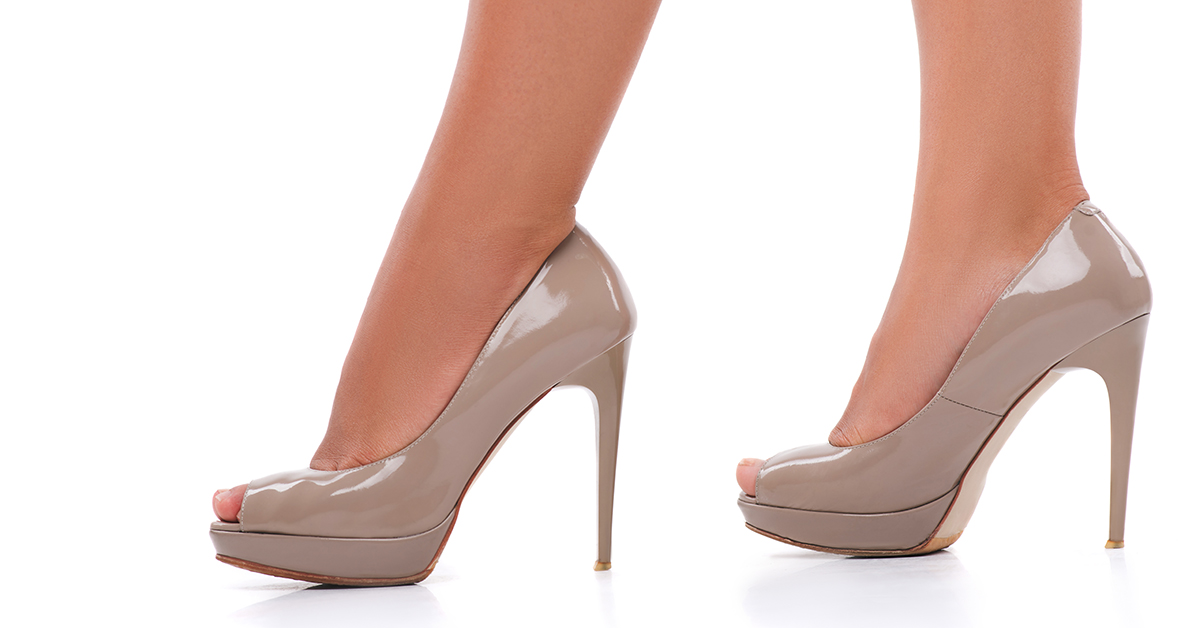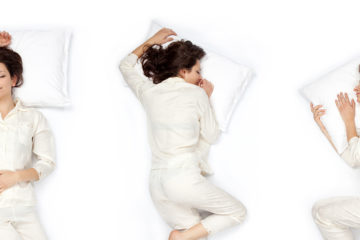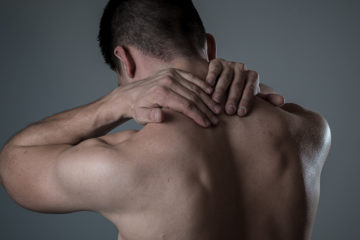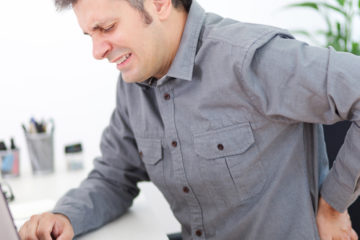Cruel Shoes – Are Those Fashionable Shoes Hurting Your Back?


How can your footwear contribute to back pain?
How many people who suffer from back pain ever stop to think that the problem might be their shoes? What could connect the pain and fatigue in you lower back to the shoes on your feet? One answer lies in the concept known to sports trainers and medical professionals as a kinetic chain. Kinetic chain is an approach to understanding the transfers of weight and stress in the human body that was first introduced in 1875 by a mechanical engineer named Franz Releaux. In the mid-1990s the concept was updated and extended by Dr. Arthur Steindler. The kinetic chain is based on the idea that movement in one part of your body will affect other parts.
What's that got to do with your aching back? And where does footwear come into it? It's a matter of the effect of your leg position, your gait and your posture on your back. If you have ever done work that required standing still for long periods, you might have experienced pain or stiffness in your back depending on which shoes you wore. Even an activity as innocent as standing at the kitchen counter to slice vegetables can trigger uncomfortable lower back pain, if your shoes are sending stress up your leg, through the hips and into your spine.
A 2010 study of over 1000 Americans (using data collected in 2003 from subjects who wore pedometers) observes an average of 5117 daily. Men came in very slightly ahead of women, averaging 5340 steps a day compared with 4912.
What kinds of shoes are the worst for back pain?
Elevated heels
You might guess that high-heeled shoes have the potential to send painful impulses up your spine, and you'd be correct - the higher and narrower the heels, the greater the potential for back pain.
Men, before you gloat, look down - are you wearing dress shoes, or cowboy boots? Your heels may be shorter, but they are a potential source of back strain and pain. If you're wearing lifts to be a little taller, are they heel-only (bad) or do they raise the foot from toe to heel (which can still affect your back by throwing you off-balance).
Anyone whose shoes elevate their heels an inch or more is getting this effect: the raised heels force you into a posture with arched back and slightly flexed knees. This in turn overworks our quadriceps muscles and reduces the length of your calf muscles, and could subject your kneecaps to 200% more than usual stress as you walk. The shifted muscle power and joint strain form a kinetic chain that rolls up your body to affect your spine.
Flats
At the other end of the shoe spectrum, you might think that ballet slippers, flats, loafers or flip-flop sandals would be a safe choice.
Too often, flats or fashion-trendy canvas sneaks are built with minimal support for the arch, and inadequate cushioning for the heel. There are lab tests that this can put as much as 25% more impact pressure with each step than you'd get from high heels. If you shop for flats shoes, choose shoes with cushioning and a measure of arch support
Flip Flops and Sandals
The greatest damage can come from thin, inexpensive flip flops. These have no cushion in the sole and no support for your toes. Your feet are much less stable in flip flops than you'd be in properly fitting sneakers. Flip flops and open-backed sandals make you bunch up your toes to keep them on your feet as you step ahead. Your steps are shorter, and the overcompensation puts stress on your hips, and spine. The lower body fatigue that results can trigger spasms of lower back pain.
What about those old Running Shoes?
Not necessarily a good choice; the support padding and cushioned sole were probably beneficial when you first got them. With use, however, the padding gets compressed, and the soles wear thin. If you wore them out by running, they're not much good now for walking or standing.
Exercise Shoes
Rocker-soled exercise shoes, which feature a thicker than usual sole that rounds upward at the toe and heel, were sold on claims that they helped improve muscle tone. However, guidelines published by the UK's National Institute for Health and Care Excellence state that healthcare professionals should not recommend rocker shoes for people with lower back pain or sciatica. No studies of rocker shoes have demonstrated significant health benefits - worse, there are studies showing that wearing them can result in worsening anxiety and depression in people who have lower back pain.
What Kinds of Footwear Help Avoid Back Pain?
Look for shoes that support your arches well.
Running Shoes (newer ones!)
Many running shoes are specifically shaped to deal with your personal manifestation of the three main arch shapes: over-pronation (low), neutral, and excessive supination (high). These shoes also address motion control, stability and cushioning for your feet. So, instead of wearing your old, worn out shoes, a new pair could be useful.
Nursing Shoes
Far from the boxy white shoes of old school days, nursing shoes are now more fashionable looking, and they function more like sporting shoes than they once were. Not all sizes and types will be easy to find, so it might make sense to shop for your nursing shoes online. Check the return policy if you're trying them out for the first time, in case you don't like the fit, the style, or the performance.
Prescription Shoes and Orthotics
This can be an expensive way to go. Working with foot and orthopedic specialists, you can get a prescription for custom-fitted shoes that help align your feet, ankles, legs and hips - all the way up that kinetic chain.
A lower-cost option might be over-the-counter or individually-fitted orthotic inserts for your own shoes that help redistribute the stresses of standing and walking. Prescription orthotics are sometimes made of stiff materials such as graphite that are molded to fit your foot. Another variety, known as accommodative orthotics, are made of more yielding materials. These are more likely to be prescribed to relieve painful foot conditions than for back pain.
With every step, you have a chance to make things better for your spine. If you experience back pain, look to your footwear to help be sure your choices aren't making things worse!



